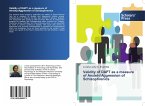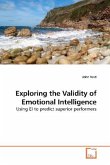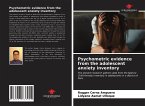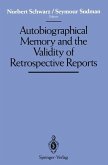High Quality Content by WIKIPEDIA articles! High Quality Content by WIKIPEDIA articles! In psychological and educational testing, Validity refers to the degree to which evidence and theory support the interpretations of test scores entailed by proposed uses of tests . Although classical models divided the concept into various "validities," such as content validity, criterion validity, and construct validity, the modern view is that validity is a single unitary construct.Validity is the most important issue in psychological and educational testing because it concerns the meaning placed on test results. Though many textbooks present validity as a static construct, various models of validity have evolved since the first published recommendations for constructing psychological and education tests. These models can be categorized into two primary groups: classical models, which include several types of validity, and modern models, which present validity as a single construct. The modern models reorganize classical "validities" into either "aspects" of validity or types of validity-supporting evidence.
Bitte wählen Sie Ihr Anliegen aus.
Rechnungen
Retourenschein anfordern
Bestellstatus
Storno








